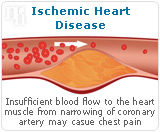Hormone deficiency, caused by declining estrogen levels followed by declining testosterone levels, is an experience any woman going through menopause can understand. Hormones start to become erratic during premenopause, when many women produce estrogen but less progesterone. This causes fluctuations in hormone levels, leading to a host of symptoms. Read on to learn about the symptoms of natural hormone deficiency.
Estrogen and Progesterone: Life Partners

Estrogen and progesterone help balance many of the body's essential functions. One without the other is like playing tennis alone: it just doesn't work. Estrogen is a stimulating hormone, while natural progesterone helps regulate these stimulatory effects. Especially in the menstrual cycle, a balance of these hormones is essential. Without progesterone, estrogen dominance can lead to a myriad of symptoms, which include:
- Weight gain
- Depression
- Headaches
- Elevated blood pressure
- Thyroid imbalance
- Decreased blood clotting
- Reduced bone density
- Decreased libido
Estrogen dominance can also lead to an increased risk of breast cancer and endometrial cancer. Correcting the imbalance between estrogen and progesterone, especially a lack of progesterone, will usually rid an individual of common problems within a matter of months.
Symptoms of Estrogen Deficiency
The physical and emotional symptoms of estrogen deficiency can be overwhelming. They include, among others:
- Infertility
- Hot flashes
- Insomnia
- Increase in facial hair
- Memory loss
- Feelings of emotional detachment
- Irritability or mood swings
- Anxiety
- Lowered libido (sex drive)
- Changes in body odor
- Breast pain or tenderness

Additionally, women suffering from estrogen deficiency have an increased risk of hip fractures and ischemic heart disease (reduced blood flow to the heart) after menopause. Managing estrogen deficiency involves a series of either lifestyle changes, alternative medicine, or hormone replacement therapy (HRT). Women who opt for hormone therapy have been shown to have decreased symptoms of menopause, which reduces the risk of death associated with hip fractures and heart disease. Despite this, prolonged use of hormone therapy increases the risk of breast cancer, as well as the risk of cardiovascular disease and blood clots.
Many women avoid taking hormone therapy because of the fear of developing breast cancer. In a recent study, 700 women with breast cancer and over 100,000 women in total studied over a 20 year period failed to show that estrogen use increases a woman's risk of breast cancer.
Click here for more information about treatments with natural hormones.


